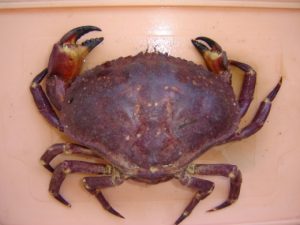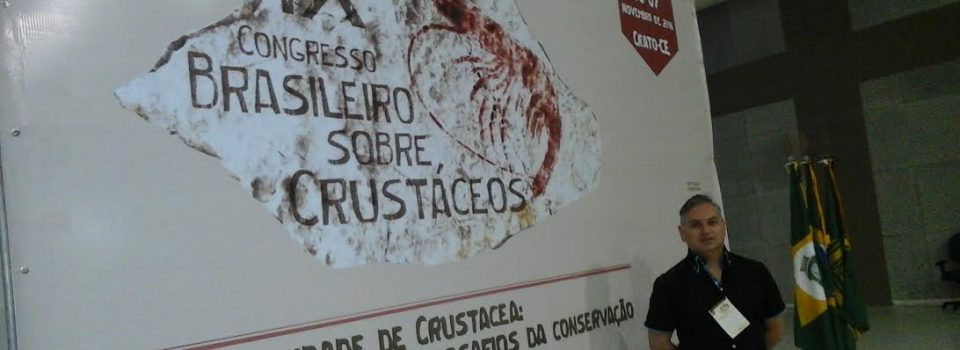IFOP researcher Andrés Olguín attends “IX Congress of Crustaceans” in Brazil
November 30th, 2016
The topics to be discussed in the Congress are mainly about the conservation and sustainability of crustaceans, and covered topics as diverse as the taxonomy of crustaceans, fisheries, reproduction and paleontology.
In the city of Crato do Ceara, Brazil, “IX Brazilian Congress of Crustaceans” was held. From Chile, Andrés Olguín, researcher of Instituto de Fomento Pesquero and Luis Miguel Pardo, academic and researcher of Universidad Austral de Chile. Andres addressed the fishery of benthic crustaceans in Chile, while Mr. Pardo referred to issues related to the reproduction of crabs in Chile.
Andrés explained “my participation in this Congress of Crustaceans will be through the oral presentation of the work “Benthic Crustaceans Monitoring Program: Bringing knowledge for Conservation and Sustainability, an experience in Chile“, this study carried out since 2007 by IFOP in Region XII and since 2012 in Regions X and XI, whose main objective is to provide the data and basic information that helps to support scientific judgement for decision-making process, an aspect that is fundamental for the fisheries administration, in order to reach the conservation and sustainability of the crab, spider crab and Chilean snow crab resources. A subject that the organizers of the Congress were very interested to know, how the collection of information was being carried out in our country.”
“The importance of this Congress is diverse, on the one hand we must consider that we do not always have the opportunity to count on these kinds of events that exclusively deal with crustacean issues, which makes possible to bring together specialists from all over the world and, in that context, the exchange of experience is very valuable. On the other hand, make public the work of IFOP in Chile on this group is very important and motivating,” concluded the IFOP researcher.
